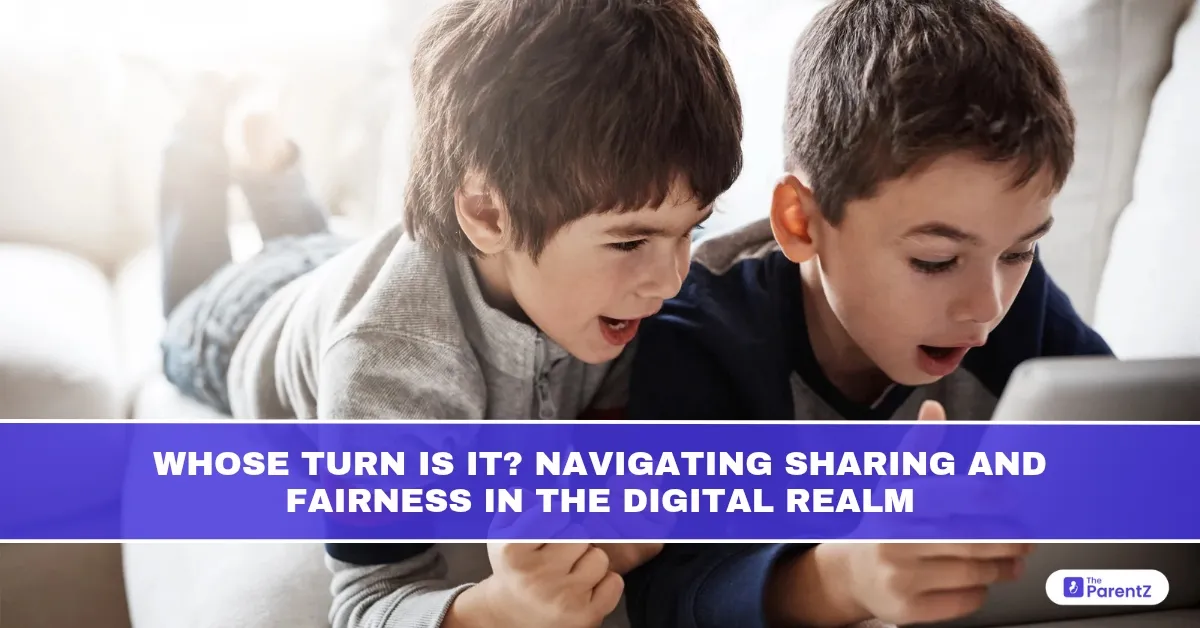Every parent has heard those familiar words echo through the house: "It's MY turn!" Whether it's fighting over the family tablet, who gets to pick the movie on streaming night, or whose avatar gets to play next in the latest game, sharing digital resources has become a modern parenting challenge that wasn't in any of the books our parents read.
The New Sharing Battleground
Remember when sharing meant taking turns with a physical toy? Those days seem almost quaint now. Today's families navigate sharing across multiple devices, screens, and digital experiences. The stakes feel higher, too - nobody wanted to stop playing with a toy truck mid-adventure, but being forced to quit a game right before beating a difficult level? That's the stuff of childhood nightmares.
Digital sharing comes with its own unique challenges:
- Digital resources don't wear out: Unlike physical toys that eventually break or show wear, digital content stays perpetually new and exciting.
- Time feels different online: Ten minutes in the physical world is nothing like ten minutes in a game or app where progress can be lost.
- Many digital experiences are designed to be addictive: Making it genuinely harder for kids (and adults!) to willingly give up their turn.
- Different ages need different access: A teenager's homework needs might clash with a younger sibling's game time.
Setting Up Systems That Work
The good news? With some thoughtful approaches, parents can establish digital sharing systems that actually work in 2025:
Smart Scheduling
Digital family calendars have evolved significantly. Many homes now use shared scheduling apps that automatically track and rotate screen time. Some helpful approaches include:
- Visual timers that everyone can see, showing exactly how much time remains.
- Automatic switching features on family tablets that transition between user profiles when time expires.
- Digital chore boards, where extra screen time can be earned through contributions to the household.
Many parents find that the most successful systems involve the kids in creating the rules. When children feel ownership over the system, they're more likely to respect it.
Teaching Digital Etiquette
Beyond just managing time, there's an opportunity to teach valuable life skills:
- Graceful transitions: Learning to save progress or reach a natural stopping point before handing over a device
- Respect for digital property: Not deleting someone else's game progress or changing their settings
- Communication skills: Using words rather than meltdowns when feeling frustrated about sharing
When Siblings Have Different Needs
One of the trickiest aspects of digital sharing is when family members have legitimately different requirements:
- Homework priority systems can help balance academic needs with entertainment
- Skill-based access might mean older kids get more sophisticated privileges
- Content filters and parental controls that adjust automatically based on which child is using the device
When Sharing Systems Break Down
Even the best systems sometimes fail. When conflicts arise:
- Take a tech timeout if emotions are running high
- Listen to all perspectives without immediately taking sides
- Look for compromise solutions that acknowledge everyone's feelings
- Revisit and adjust your family's digital sharing agreement regularly
Beyond Devices: Sharing in the Connected World
Sharing in 2025 goes beyond just taking turns with the tablet. Families now navigate:
- Shared cloud storage where family photos and documents live
- Family subscription services with personalized recommendations and watchlists
- Multiplayer gaming experiences where cooperation might be more important than taking turns
- Shared social media accounts for younger children under parental supervision
Building Digital Citizenship
Perhaps the most important aspect of teaching digital sharing is helping children understand that these skills transfer to real-world situations. When kids learn to share fairly in digital spaces, they're developing:
- Patience and delayed gratification
- Empathy for others' needs and interests
- Negotiation and problem-solving abilities
- Respect for boundaries and agreements
The Parents' Balancing Act
Parents face their own sharing challenges in the digital realm. Between work emails, family communications, and the occasional moments of downtime, adults must model the behavior they hope to see:
- Put down your own device during family time
- Follow the same rules you set for your children
- Acknowledge when you're struggling with your own digital boundaries
- Celebrate small wins when sharing goes well
Conclusion
As technology continues evolving, so will our approaches to sharing. The families who thrive will be those who maintain open communication, flexibility, and a sense of humor about the inevitable bumps along the way.
Remember that perfect digital harmony isn't the goal—learning to navigate conflicts fairly is actually more valuable than avoiding them altogether. When children master these skills at home, they're building capacities that will serve them well in school, future workplaces, and their own families someday.





Be the first one to comment on this story.